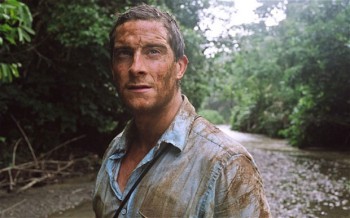The Importance of Survival Skills
Do you feel that you don’t need survival skills? Do you think that knowing how to be able to tell north without a compass, or how to light a fire without a match or cigarette lighter is only useful to Bear Grylls types? Think again. Here are two stories of ordinary folk going about their day-to-day business who found themselves in dire need of skills to survive harsh conditions.
Lost in the Nevada Wilderness
It is December 1992. Jim Stolpa, a 21 year-old private in the US army, has just lost his grandmother and is determined to get to her funeral in Pocatello, Idaho. He intends to drive all the way from his home in Castro Valley, California with his 20-year-old wife, Jennifer, and their 4-month-old son, Clayton.
At around eight hundred miles, this is a 12 hour journey on the I-80, taking them over the Sierra Nevada into the state of Nevada and then on to Idaho. Unfortunately, blizzards have hit the Sierra and the I-80 has been closed till the following morning. Unwilling to wait a few hours, the couple decide to head north to bypass the bad weather but find themselves on Hell Creek Road, a largely unused track where the weather has, unbeknownst to them, already left its mark.
Jim’s truck soon gets stuck in the snow and before long, the couple realize that they are too far from anywhere to wait for a passerby to rescue them. Using a map, they start on a trek to the nearest Interstate, but soon find themselves lost in the wilderness, miles away from the nearest living soul.
On the sixth day of their journey, Jennifer and Jim wake up after a night’s rest in a cave, but Jennifer’s legs can no longer support her. The couple are forced to separate, with Jennifer staying in the shelter of the cave with Clayton, while Jim heads back in the direction of their truck to seek help.
Three days and some 50 miles later, Jim stumbles across a desolate road along which a log cabin owner, Dave Peterson, happens to be driving. Within hours, Dave and his friend, Dusty, manage to find Jennifer and Clayton. By nighttime, the family is reunited in hospital.
All three survive their ordeal with the only casualties of the event being all of Jennifer’s and Jim’s toes, which are lost to frostbite.
Stranded in the Amazon
Turn the clock back twenty-one years to Christmas eve of 1971. Juliane Koepcke is a 17 year-old girl attending high school in Lima, Peru. The daughter of German immigrants, Maria and Hans-Wilhelm, she is on a journey to the eastern city of Pucallpa, with her mother. There, the elder Koepckes, both zoologists by profession, had started a private nature reserve called Panguana, just a few years earlier.
Maria and Juliane are flying on LANSA’s last remaining aircraft, a Lockheed L-188A Electra, when lightning strikes a wing and ignites a fuel tank. The ensuing fire causes the wing to snap, and the row of seats Juliane is sitting in gets separated from the rest of the structure as the aircraft is torn apart. She free-falls toward the Amazonian rain-forest below and miraculously survives.
 Despite her considerable injuries, the teenager wakes up the next day and after several hours of combating dizziness, she is able to start moving around. Her first priority is to look for her mother, but after a whole day of searching for her she comes up with nothing. Juliane decides to attempt a trek back to civilization on her own.
Despite her considerable injuries, the teenager wakes up the next day and after several hours of combating dizziness, she is able to start moving around. Her first priority is to look for her mother, but after a whole day of searching for her she comes up with nothing. Juliane decides to attempt a trek back to civilization on her own.
Her family background and her previous experience in the jungle prove invaluable, as she sets off following a river downstream. Juliane walks slowly, a few paces at a time, as she repeatedly throws her one remaining shoe ahead of her, to test for the presence of snakes.
After ten days she comes across a boat in the river and upon close inspection of the area, finds a hut. She uses a reserve of diesel fuel kept inside to clear maggots that have taken over her wounds and waits for the owners to return. Three lumbermen eventually show up and Juliane’s ordeal is over.
All other 91 passengers and crew on the plane, including Maria Koepcke perished in the crash, even though it is later discovered that a few had survived their drop from the sky.
Juliane Koepcke’s survival knowledge was key to her survival. Had her father not taught her to follow rivers downstream when lost in the jungle, she almost certainly would have died along with the rest of her fellow passengers. Jennifer and Jim Stolpa would probably not have lost their toes to frostbite had they obeyed the cardinal rule of always packing blankets, emergency clothing and extra supplies of food and water when traveling through inclement weather.
How well would you cope in similar circumstances? How good is your survival general knowledge?
Read through this list of survival tips and see how many of the 50 tips you recognize.
Guest Author: Stuart Langridge















these are very important skills that every one have to acquire, thank you for this post
I’ve read also another good survival tips that vary tips in different situations I think these will be helpful for users:
http://surviveprograms.com/66-survival-tips-and-hacks-ultimate-guide-list/